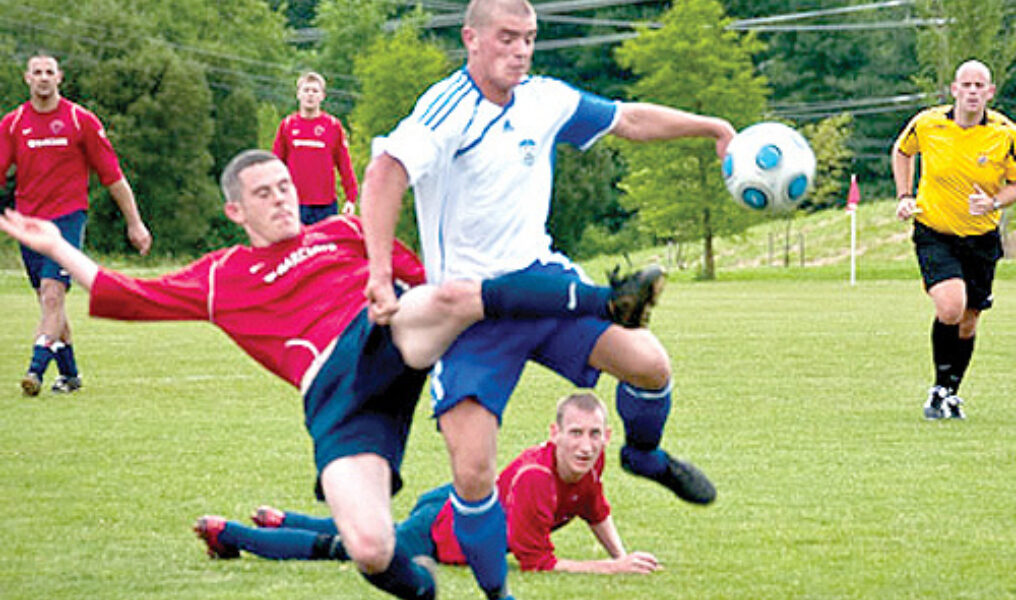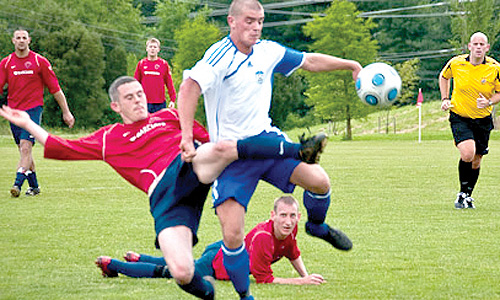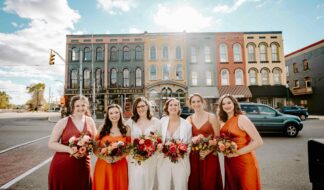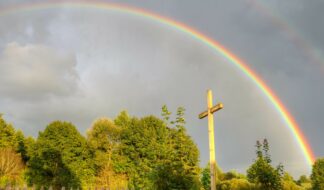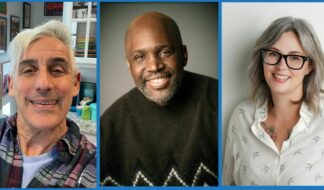By Dan Woog
The OutField
Though soccer is the world's most popular sport – and the International Gay and Lesbian Football (Soccer) Association boasts more than 80 teams in over 20 countries – this year's annual international tournament almost did not happen.
But thanks to the energy and enthusiasm of gay men and women – and straight allies – in Washington, D.C., the 2009 Gay Soccer World Championship was a rousing success.
When the Philadelphia organizers bowed out of their commitment just nine months before the event, the Washington soccer world kicked into high gear. The Federal Triangles Soccer Club has long been one of the strongest members of the IGLFA, participating in every world championship since the club's founding in 1990. Led by president Jim Ensor, they put on a show that attracted 26 teams, from as far away as Australia and Argentina.
London Stonewall repeated as men's Division I champion. The Seattle Jet City Strikers took the men's Division II title, while the Philadelphia Falcons won the women's exhibition category.
Gay soccer provides clubs and teams a place where "people can feel free to play, and be who they are. Too often gay men and women are stereotyped, and made to think they can't do certain things. It's telling that, still today, there is not one out athlete actively playing in a major U.S. team sport," says Michael Pranikoff, 2009 tournament marketing chair.
Pranikoff notes that many youngsters still find it difficult to be both athletes and out of the closet. In Turkey, a gay soccer referee was recently banned. Rumors about top soccer players around the world continue to make harsh headlines.
Gay soccer offers a sanctuary. "There is a freedom on the pitch," Pranikoff says. "People can relive a childhood desire that they couldn't, or were too afraid to try. They can even relive a high school or college moment when they played, but now they can celebrate a goal with their partner, boyfriend or girlfriend who is sitting on the sideline, openly and loudly cheering for them. That is not something you see on most soccer fields in the world."
At the same time, Pranikoff says, straight and questioning players are welcome. And this year's tournament received a big boost from Washington's two professional teams. DC United of Major League Soccer and the Washington Freedom (Women's Professional Soccer) both offered key support. They joined organizers at D.C.'s Pride this year, supplying players to sign autographs. (The Freedom sent superstar Abby Wambach.)
But staging the tournament was ultimately a grassroots effort. Ensor – who first played in the tournament in 1997, coached high school soccer for 12 years and worked extensively with the Maryland State Youth Soccer Association – helped beat the bushes to get the D.C. soccer community, gay and straight, involved.
People rolled up their sleeves, he says, "because the event was unique, the visibility of GLBT sports has improved in recent years, the stigma attached to gay sports has softened, and the need for outreach and acceptance is creeping in at all levels of sport."
The Greater Washington Sports Alliance, Destination DC (local tourist bureau) and mayor's office were all early supporters. Their assistance enabled organizers to reach out to area businesses. Adidas, Eyre, ASG Sports, Experient and Front Point Security all came through strongly.
Social events, as well as all-week Metro passes and shuttle buses to fields, extended the feeling of camaraderie – and partying – beyond the matches themselves.
"All of the teams hung out together," Pranikoff reports. "Old friendships were renewed, and new connections made."
Pranikoff spent countless hours updating the website, and posting Feedback and Twitter news. "People told me they'd call home to tell their boyfriend, partner or family they'd won, and the person on the other end would say they already knew because they were watching online," Pranikoff says with pride.
At the closing party, JC Cummings – a Washington-area gay soccer pioneer – was honored for his contributions to the IGLFA. He expressed gratitude and love for what gay soccer has given him.
"The people who were supposed to care for me when I was young tried their best, but they didn't do a very good job," Cummings said. "They told me that gay people could not participate in sports. That confused me. Groups like the Federal Triangles Soccer Club and ILGFA have liberated me from their prejudices."
Cummings called the players and officials at the 2009 championships "part of a movement. In 1995, when the tournament was in Berlin, the leader of the German women's national team told his players that anyone who played would lose her place on the national team.
"In Germany today, gay couples can legally marry. We move the beach one grain of sand at a time. It's a slow movement, but you are doing the work."
